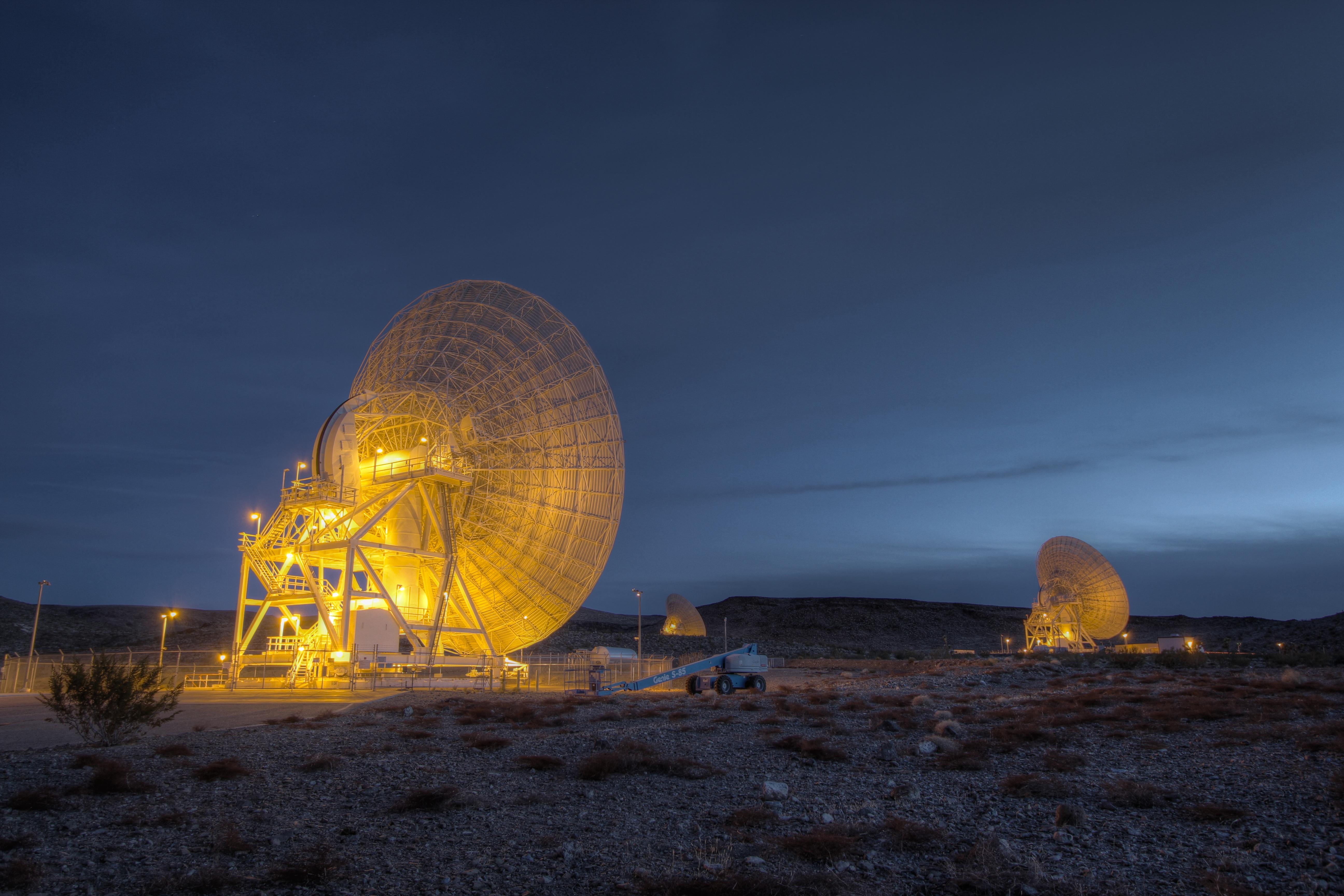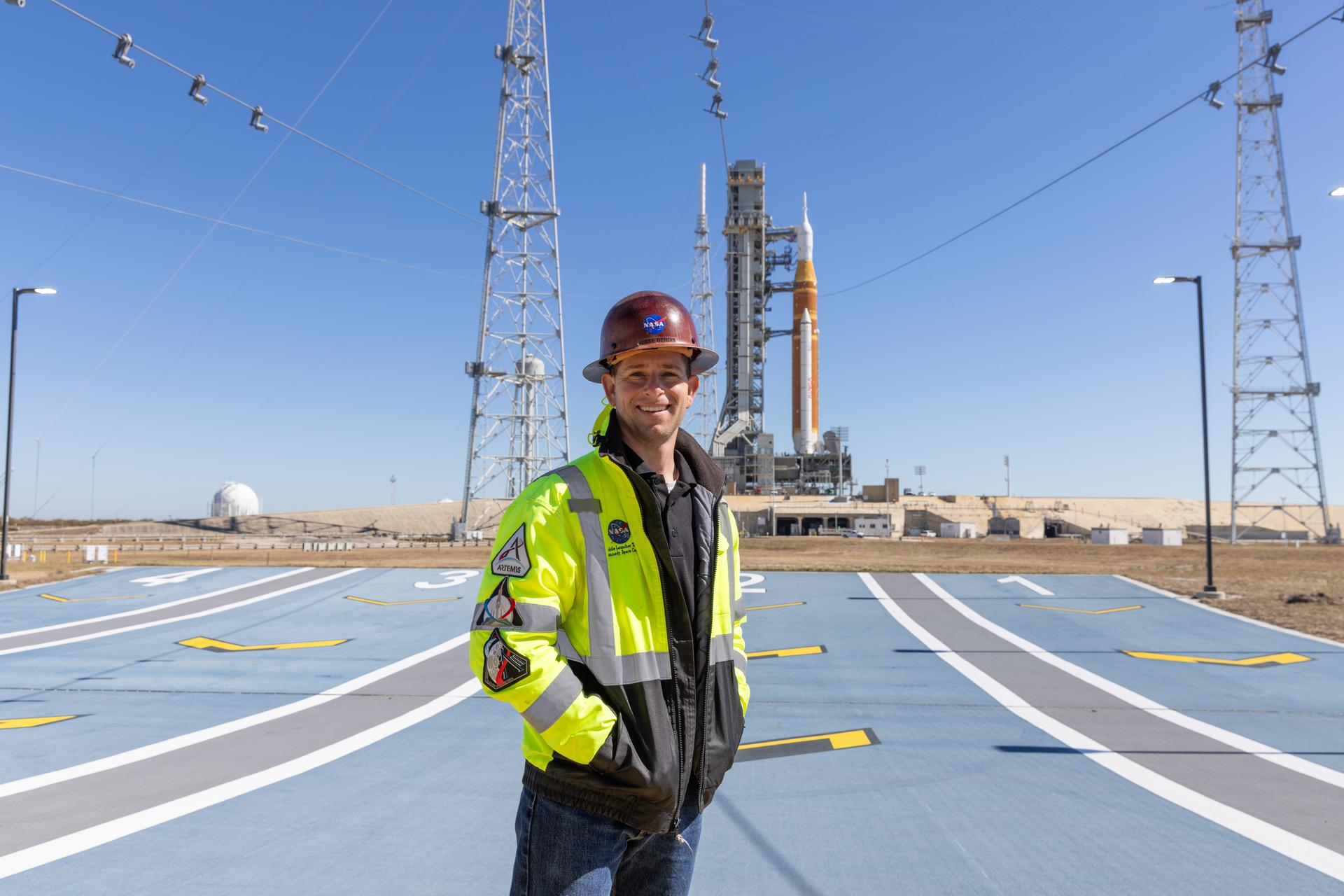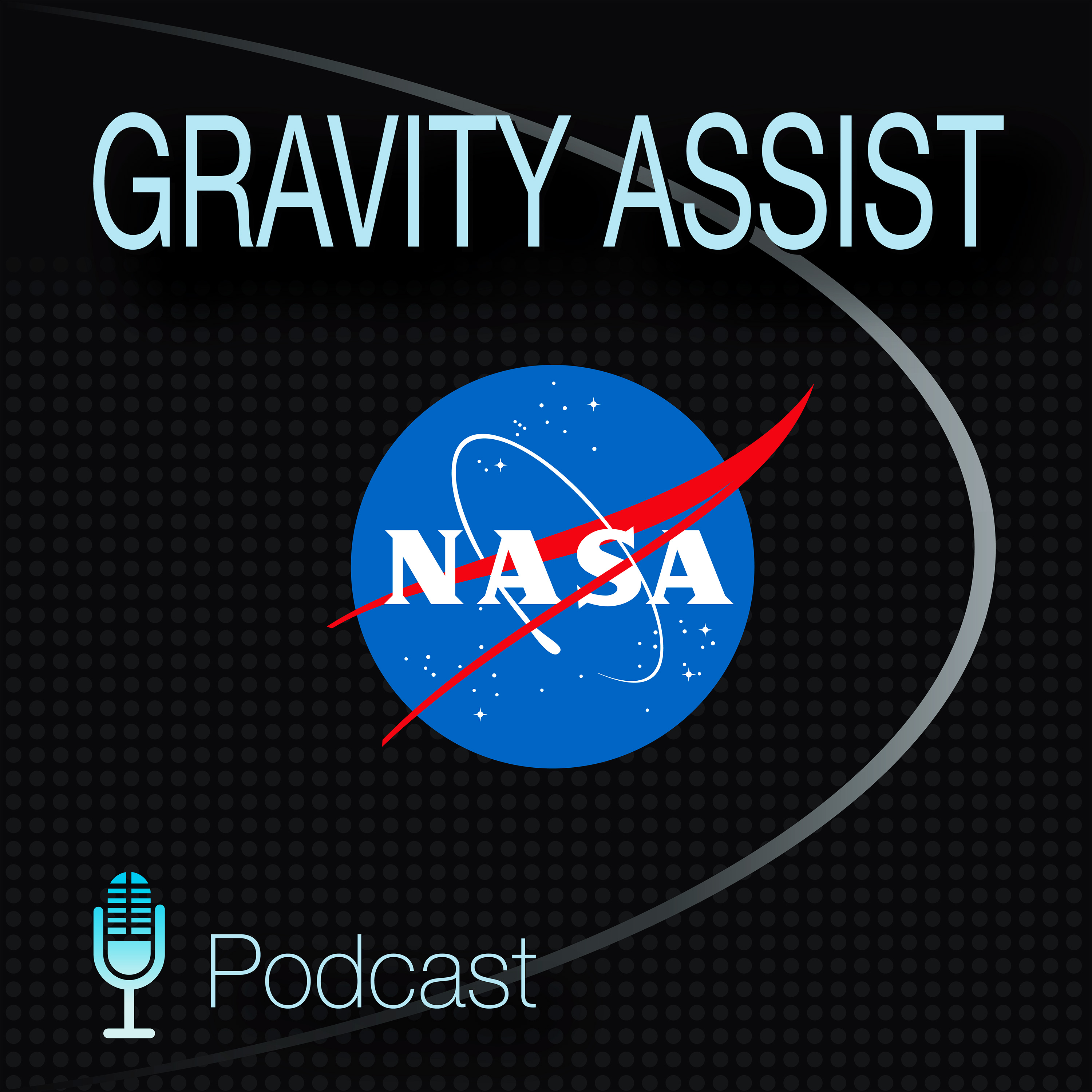
If astrobiologists find life beyond Earth in the solar system, it will most likely be in the form of tiny organisms called microbes – nothing that would talk to us. But the galaxy is a big place; the universe even bigger. Somewhere out there, life may have evolved to become as smart, or even much smarter, than us. And the next step in that ladder may be “post-biological,” argues Susan Schneider, the Baruch S. Blumberg NASA/Library of Congress Chair in Astrobiology, Exploration, and Scientific Innovation. Advanced life may be entirely based on microchips and silicon, using the tools of artificial intelligence instead of brains. In this episode of “Gravity Assist,” learn about what life might be like in the future and how science fiction has influenced thinking around this topic. Bonus: Jim Green’s theory about the movie “2001: A Space Odyssey.”
Jim Green: In our search for life, particularly here in the solar system, we think we’ll find microbial life first. But beyond that, intelligent life, well out into the galaxy, what are we going to find? What would it look like?
Susan Schneider: They may be so different from us that they’re unrecognizable.
Jim Green: Hi, I’m Jim Green, Chief Scientist at NASA, and this is Gravity Assist. On this season of Gravity Assist we’re looking for life beyond Earth.
Jim Green: I’m here with Dr. Susan Schneider and she is the NASA Blumberg Chair at the Library of Congress and the William Dietrich Chair, Distinguished Professor at Florida Atlantic University. So today we’re going to talk about looking for life beyond Earth and what it might be like. Welcome, Susan to Gravity Assist.Susan Schneider: Hi Jim, it’s nice to meet you and be on your show.Jim Green: Well, the NASA Astrobiology Chair at the Library of Congress is really a neat position. What are you working on?Susan Schneider: Oh, so many things. I’m writing a book on the future of intelligence right now.
Susan Schneider: And I’m asking the question, what sort of system will have the greatest capacity to be the most intelligent system? So I’m worried just looking here on Earth about whether humans could keep up with AI.
Jim Green: So Susan, what is artificial intelligence?Susan Schneider: So AI is all around us. It’s there when you’re doing a Google search, it’s there when you’re talking to Siri and it’s getting smarter all the time. So you might think AI is like a robot, but that’s only one type of artificial intelligence. I like to think of AI as any sort of intelligent algorithm.Jim Green: So what do you think artificial intelligence has to do in the search for life?Susan Schneider: Well, we might use our AIs to make predictions, for example. So we might find information about exoplanets from our computers. But what I focus on is a little different. I actually focus on the possibility that life forms out there, should there be any that survived their technological maturity, may actually develop their own artificial intelligences. And I argued in a recent book called “Artificial You” that the greatest sorts of intelligences, whether they be on, in Earth’s future or out somewhere on other planets, would be artificial intelligences.
Susan Schneider: I actually think that we could augment the brain to become far more intelligent than we are right now. And I also think that artificial intelligence could eventually out-think us.
Susan Schneider: Look at the speed of processing that has gone for over the last decade, we’ve seen immense improvements in computational speed. And then just think about the possibility that you could have in principle, a general intelligence that is instantiated in something the size of a planet. That is to say you could have a computronium the size of a planet that has access to the entire internet. I think that that in principle could just blow us away.

Jim Green: Well, you know, NASA you know, is always looking forward to push that envelope of more intelligence in our spacecraft. When I think about the 60s, we had some really tough times getting our circuitries to work and run instruments. And then as we got in the 70s, we had some initial computers. But each and every generation of computers were updating our systems. We would love to be able to have complete artificial intelligence in our rovers on Mars to avoid things, get to places, drill this place. And so moving in that direction is a natural thing for NASA to do. And should we be considering doing that here on Earth too, in terms of being able to have these machines access the internet, get access to information, allow us huge amounts of resources that can help us in our life?Susan Schneider: Well, when you were saying that about what NASA would like, I was thinking, well, haven’t you all seen [the science fiction film] “2001: [A Space Odyssey]” ? Hal was iconic! And here on Earth, there’s something called the control problem.
Susan Schneider: So people like Bill Gates, Elon Musk, Nick Bostrom, the list is really, really long. The late Stephen Hawking, were all very, very worried about how to control artificial intelligence that reaches a human level and then surpasses us, becoming what they call “super intelligent,” which is by definition, a hypothetical form of intelligence, which out-thinks humans in every dimension, social reasoning, mathematical skills and more.
Susan Schneider: And so until we get a handle on the control problem, I think we have to bear in mind that if we use too general of AIs, too sophisticated AIs, we have to make sure we do so safely, whether it be here on Earth or in outer space. And of course in outer space, you also have that awful problem of when something breaks.
Jim Green: Well, artificial intelligence requires data and sometimes that data is conflicting. How do you think artificial intelligence is going to deal with conflicting sets of information to make a decision? Are there decision rules that it then makes, or is there… I took the path least traveled by? We do it all the time, but what’s a machine going to do?Susan Schneider: Very good question. There are so many different kinds of AI systems even today. So, some like these deep learning systems are very data-driven. And so you increase the data set and then a human corrects errors in the machine’s algorithms. And the idea there is that over a large amount of training sets, then you finally get a system that gets the information right. But there are all kinds of other AI techniques. And one technique which comes to mind is the possibility of neuromorphic computing that is artificial intelligence that is based on actual discoveries in cognitive science about how different parts of the brain compute. So that goes back to the idea that the brain itself is in a sense a computational engine. So for example, there are different parts of the brain right now even today that are characterized by a proprietary algorithm.Susan Schneider: So for example, the hippocampus, it is responsible for encoding new memory. There are certain areas of the brain like area CA1, which we’ve already identified the algorithm that it computes. So the idea then is, if an AI is deficient in its reasoning, let’s see how humans do it. And I don’t take for granted the idea that the first artificial general intelligence is that rival our own intelligence will be like us. They may not because they could be a hodgepodge. You could take algorithmic encoding in the human case for the hippocampus, but do something very different than what humans do for other parts of the brain. Who knows what kind of intelligences will be out there, but I do think that over time they will out-pace us.
Jim Green: What do you think life beyond Earth would be, intelligent life? What should we expect. If we’re moving into an AI realm, do we expect them to do that too?Susan Schneider: I think so. And I call it the post-biological approach in astrobiology. We all understand that if and when NASA finds life, it will probably be microbial.
Susan Schneider: But what I am saying is that if we’re getting to the point we’re flipping on our own computers, and this is still pretty early in our own technological evolution really. Just think it seemed like just yesterday when we had the television or the automobile or the airplane and now look where we are.Susan Schneider: So it may be only a blink of an eye in cosmic time really before we start enhancing our own intelligence and becoming partly, if not, fully synthetic ourselves. It could be that the most intelligent civilizations out there are, in fact, post-biological. So they grew out of originally biological civilizations like ourselves, and they’re vastly smarter than us. And in fact, they may be so different from us that they’re unrecognizable.
Jim Green: Then why haven’t we been contacted yet? Where are they, as Fermi used to say to his colleagues?
Susan Schneider: Yeah, where are they? How can one not ask that question and be interested? Everybody’s interested. Well, I liked Seth Shostak’s answer. It was like, well, do we really get interested in our goldfish? The intellectual gap between us and a civilization on the order of 50,000 years older than us, and that is now no longer biological even, is going to be huge. So why would they find us interesting? And I also say, well, being a Trekkie. I imagine lots of your listeners are. They may have a prime directive against bothering such low level species, and who knows maybe they’re waiting for us to evolve into something else.Jim Green:Well, the only thing I could say relative to that fishbowl is a… They would be interested in the fshbowl if they had a lack of water. H.G. Wells thought of that first.
Jim Green: Well, let’s tease on that science fiction portion of it when you had mentioned Arthur C. Clarke’s “2001.” I have reread the book and I’ve watched the movie at its anniversary, 50-year Anniversary. And I’ve come to the conclusion that in reality Hal did malfunction. Hal’s objective was to find life. And the humans that were on board, their objective was to find life, but the difference is, they were looking for life like them, Hal was looking for artificial life. And once he communicated and found it, he did not need the bags of water anymore, okay?Susan Schneider: Whoa, that’s awesome.Jim Green: Because to me unfathomable that, Hal malfunction exactly at the wrong time. He was executing his program that finding life was his top objective and everything else was secondary and therefore executed that. Well, what’s your favorite science fiction work and why?
Susan Schneider: Oh, tough one. All right, so I definitely like “Contact.” Also, I have to tell you, I really liked the film “Interstellar.” So I am a big fan of film, maybe it’s because I don’t really have time to read science fiction very much anymore. But “Interstellar,” which Kip Thorne, the physicist helped with and that was terrific even the soundtrack was great. But in terms of reading, I love classic works of science fiction, Arthur C. Clark, Isaac Asimov. I’m also a fan of Greg Egan short stories because he writes about brain chips and things like that.Jim Green: Well, do you think science fiction is important for us in shaping our thinking about our future in space?Susan Schneider: I really do. It’s funny because I noticed I’m very interdisciplinary, so I moved from one field to the next, from neuroethics to AI, to astrobiology, philosophy of mind and the lingua franca seems to be science fiction. And I noticed that that’s what gets so many of us conceptualizing the future. And I was going to say for better or worse, but I really think it’s clearly for the better. The range of science fiction, there’s cyber punk, there’s traditional. like civilization and empire type of science fiction. There’s just so much there.
Jim Green: Well, we are looking. NASA is looking for life in our solar system, as you say, it’s probably going to be microbial.Susan Schneider: Oh yeah.Jim Green: And probably under the surface, in particular, whether it’s under an ice shell or it’s under the crust of Mars, but those are really prime candidates to be looking for. But in reality, do you think society is ready for the announcement that we have found life beyond Earth?Susan Schneider: I think the society is so distracted right now that anything can happen. But I think it’s ready and I think it’s coming in the microbial case. And it would be sad if it flew under the radar right now with all that’s going on in the world. It would be really sad because it’s so significant. And it used to bother me so much when I was talking to reporters about my project for NASA on post-biological intelligence because I always said to them, “You know what’s really interesting, even more interesting than this, is the search for microbial life.”
Jim Green: Mm-hm.
Susan Schneider: That search is amazing and it’s going to teach us so much.
Susan Schneider: There’s the possibility that life is related. There are deep philosophical questions about the origin of life.
Jim Green: Well, Susan, I always like to ask my guests to tell me what was that event, that person, place or thing that got them so excited about being the scientist they are today. I call that event a Gravity Assist. So, Susan, what was your Gravity Assist?Susan Schneider: Boy, that’s a good question. Well, I got into Astrobiology late in the game. So I’ll tell that story. So I was just called up by Steven Dick and asked to speak at the Library of Congress on… He said, “What it’s like to be an extraterrestrial?” And I couldn’t believe I got that kind of invitation. And of course, you can’t really answer the question, what is it like to be an extraterrestrial? We don’t even know that they exist. But of course, that led me on my little path in astrobiology to arguing that the smartest aliens will be post-biological. I argue that AI may not be conscious. So it may be like nothing to be an extraterrestrial AI.Jim Green: Well, Susan, thanks so much for joining me in discussing these fascinating topics.Susan Schneider: Oh, my pleasure. Thanks for having me. It was really fun to talk to you.
Jim Green: Well, join me next time as we continue our journey to look for life beyond Earth. I’m Jim Green and this is your Gravity Assist.
Credits:
Lead producer: Elizabeth Landau
Audio engineer: Manny Cooper



























